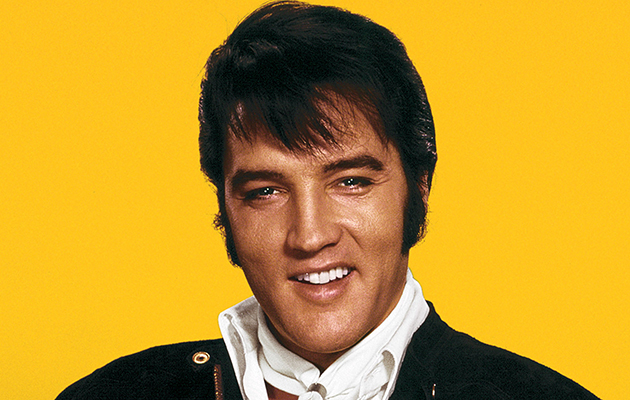June 1970. A rejuvenated Elvis Presley arrives at RCA Studio B in Nashville wearing a flamboyant black cape and carrying a lion’s head walking stick. His business, though, is to reconnect with the long-lost roots of his music; to create a remarkable album, Elvis Country. “I was wondering,” he ...
June 1970. A rejuvenated Elvis Presley arrives at RCA Studio B in Nashville wearing a flamboyant black cape and carrying a lion’s head walking stick. His business, though, is to reconnect with the long-lost roots of his music; to create a remarkable album, Elvis Country. “I was wondering,” he says, “if any of you guys would like to help me make a few phonograph records?…” Words: Nick Hasted. Originally published in Uncut’s February 2014 issue (Take 201).
____________________________
It’s a sleepy Sunday afternoon on the outskirts of Bonn. Last night, veterans of Elvis Presley’s TCB Band packed out the city’s Stadthalle as part of a European tour to celebrate what would have been the King’s 78th birthday. Today, a couple of middle-aged men in pompadours from the local Elvis Presley fan club drift around the foyer of a hotel close to the venue. Meanwhile, just a few feet away from them, sitting at the rear of the hotel’s restaurant, two members of the TCB Band are reminiscing about a forgotten peak in Presley’s career. James Burton was Presley’s guitarist and right-hand man from 1969 until the singer’s death in 1977. Sporting a thin moustache and a black Rock And Roll Hall Of Fame cap and jacket, he trades stories with bassist Norbert Putnam, a founding member of Alabama’s iconic Muscle Shoals rhythm section. They met in Nashville, almost 44 years ago. A copy of the first record they played on together, Elvis Country, lies on a table between them – a photograph of the future King Of Rock’n’Roll, aged two, staring out at them from the front cover.
“I was totally stiff with fright before that first session,” laughs Putnam. “I don’t know why, because I’d already had a very successful 10 years in the studio. But something told me, this is bigger than anything that you’ve ever been a part of. I remember standing in the bathroom, just before I went out there, and I’d look in the mirror and say, ‘Dear God, guide my fingers. Don’t allow me to be the one to screw up this up.’”
When Elvis Presley entered the studio in June 1970, he did so as a man enjoying an unexpected third-act peak. The NBC TV special – the ’68 Comeback – his record-breaking live return in Las Vegas, and a batch of sessions at Memphis’ American Sound Studio resulting in the acclaimed From Elvis In Memphis album had successfully reinvigorated his career after a decade of artistic and commercial decline. These are remembered now as the final flare of Presley’s majesty, but the Elvis Country sessions tell a different story: of a comeback with some distance left to run. As the surviving musicians who gathered in Nashville’s RCA Studio B now testify, they found Presley energised, determined, ready to pull off whatever he set his mind to. “He was fearless,” confirms Putnam. “Elvis didn’t have any borders.”



